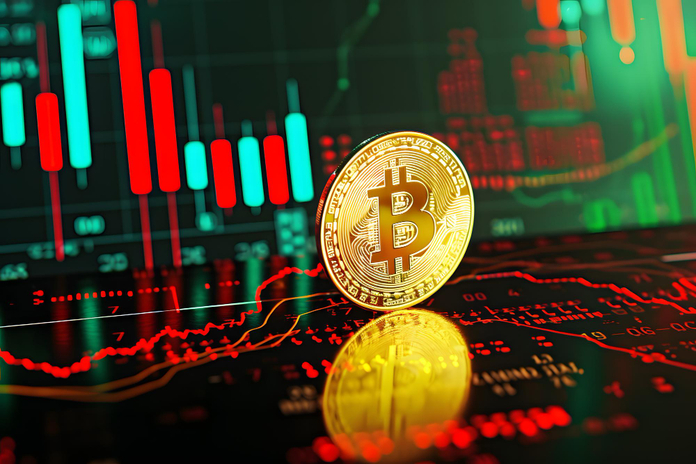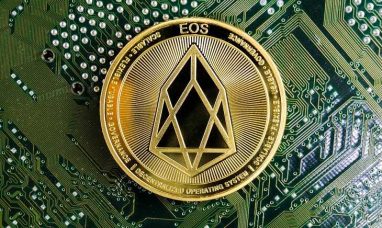In a move that could redefine the future of institutional finance, JPMorgan Chase & Co. (NYSE:JPM) has completed its first test transaction involving tokenized treasuries on a public blockchain. The landmark trial was conducted using Ondo Finance’s testnet and Chainlink’s cross-chain communication infrastructure, pushing the bank further into the evolving world of decentralized finance (DeFi).
This marks a significant milestone in the adoption of blockchain within traditional finance, particularly as major institutions like JPMorgan look to improve payment and settlement systems using smart contract-enabled solutions.
JPMorgan’s First Public Blockchain Transaction
The trial, completed in early May, involved a Delivery versus Payment (DvP) transaction—an established mechanism in financial markets that ensures the delivery of securities only occurs if payment is made. Traditionally, DvP processes rely on fragmented systems and are prone to costly delays.
To overcome these challenges, JPMorgan used Kinexys, its internal blockchain division, to transfer digital payments across two accounts. The payment leg was matched against the asset leg—Ondo’s tokenized Short-Term US Treasuries Fund (OUSG)—on Ondo Chain’s testnet. The asset exchange and payment settlement were orchestrated simultaneously using Chainlink’s (CRYPTO:LINK) interoperability framework.
This is the first time JPMorgan has utilized a public blockchain to settle tokenized treasuries, signifying a growing comfort with decentralized infrastructure in the financial mainstream.
Why Tokenized Treasuries Matter
Tokenized treasuries are digital representations of traditional U.S. Treasury bonds and bills, issued and settled on a blockchain. They combine the safety and stability of government debt with the speed and transparency of decentralized systems.
Ondo Finance noted that traditional financial systems suffer from inefficiencies that lead to delays and settlement failures, which reportedly cost market participants over $914 billion in the past decade. Tokenization of treasuries addresses these pain points by enabling real-time settlement, reducing counterparty risk, and improving back-office operations through automation.
According to Nelli Zaltsman, Head of Platform Settlement Solutions at Kinexys, “By securely and thoughtfully connecting our institutional payments solution with both external public and private blockchain infrastructures, we can offer scalable and efficient solutions for clients.”
Institutional Interest in Public Chains Grows
The successful execution of this transaction highlights a broader trend: major financial institutions are actively exploring public blockchain networks. Traditionally cautious about DeFi due to regulatory and security concerns, banks like JPMorgan, Morgan Stanley (NYSE:MS), and Fidelity Investments are now dipping their toes into the space.
Morgan Stanley is reportedly working on a crypto trading platform for its E*Trade users, while Fidelity recently began testing its own stablecoin, signaling deeper institutional interest in blockchain-based assets.
As Sergey Nazarov, co-founder of Chainlink, stated, “It is becoming increasingly clear to the world’s institutions that they have a large addressable market in the public chain community.”
Market Reaction and Outlook
Despite the groundbreaking nature of the announcement, Ondo’s token (CRYPTO:ONDO) and Chainlink’s token (CRYPTO:LINK) both saw minor declines of around 1% on the day of the announcement, reflecting broader trends in the Real World Asset (RWA) sector, which slipped 0.7%.
Market volatility aside, the successful DvP transaction demonstrates how tokenized treasuries could become a staple of global finance. It opens the door to 24/7 markets, enhanced security, and significantly lower settlement times and costs.
The Future of Tokenized Treasuries
With more institutions experimenting with blockchain, tokenized treasuries may soon move from testnets to live production environments. If adopted widely, this could streamline capital markets and enable greater financial inclusivity.
As JPMorgan’s trial shows, tokenized treasuries are not just a concept—they’re a viable innovation ready to reshape how the world’s largest financial players operate.
With further regulatory support and interoperability improvements, tokenized finance could unlock new efficiencies, attract global participation, and transform how governments and institutions issue, trade, and settle assets.
Featured Image: Freepik




